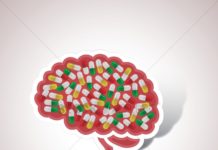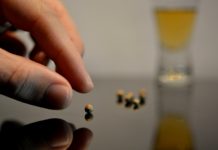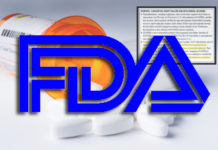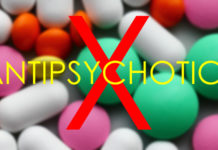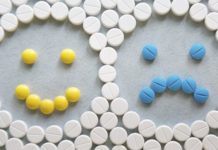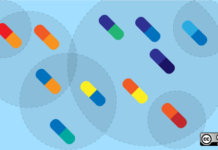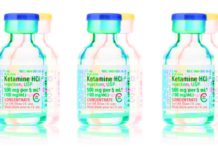The Reckoning in Psychiatry Over Protracted Antidepressant Withdrawal
Medically-induced harm—affecting tens of millions of people worldwide—has taken the field decades to take seriously.
How Academic Psychiatry Minimized SSRI Withdrawal
If academic psychiatry is evidence-based, why did it take two decades to recognize SSRI withdrawal as widespread and chronic among patients?
No Good Evidence That Antidepressants Prevent Relapse
Trials of antidepressants for relapse prevention are confounded by withdrawal effects caused by the drugs.
Neuropsychological Tests Reveal Consequences of Polypharmacy
Neuropsychological assessments reveal the cognitive, occupational, and social impact of polypharmacy in psychiatry.
Antidepressant Misinformation Promoted on Popular Websites
A new study indicates that popular online resources do not accurately present the scientific evidence on the risks and benefits of antidepressants.
Antipsychotic Trials Show Increasing Placebo Response and Declining Drug Response
A new review of antipsychotic trials conducted over the last 24 years finds that the placebo response rate is steadily increasing, and drug response is decreasing.
Antidepressant Use Continues to Climb Among Youth on Medicaid
New study finds that Medicaid enrolled youth were 14 times more likely to be on an antidepressant in 2014 than in 1987.
Researchers Find Paroxetine Harms Developing Brain
Researchers at Johns Hopkins test paroxetine on developing brain cells and discover numerous neurotoxic effects.
Does Longer Duration of Untreated Psychosis Cause Worse Outcomes?
New research counters the long-held assumption that a longer duration of untreated psychosis is associated with worse outcomes.
Benzodiazepines Linked to More Emergency Department Visits
Recent research implicates benzodiazepines as being involved in a high rate of emergency department visits in the US.
Suicide Warning on Antidepressant Label is Justified, Researchers Say
Researchers confirm that the suicide warning for antidepressants is justified by the evidence and that claims that the warning is harmful lack support.
Largest Survey of Antipsychotic Experiences Reveals Negative Results
A new survey exploring antipsychotic user experience finds that more than half of the participants report only negative experiences.
Review Explores First-Person Experiences of People Taking Antipsychotics
A new systematic review finds that patients report reduced symptoms but also loss of self and agency while taking antipsychotics.
Hearing Veteran Narratives is Key to Suicide Prevention
Current suicide assessment practices of the VA are reductive and do not allow for the individual’s narrative to be heard.
How Dissenting Voices are Silenced in Medicine
Researcher criticizes the many ways opposing viewpoints and dissenting voices are squashed in the field of medicine.
Researchers: Antidepressant Withdrawal, Not “Discontinuation Syndrome”
Researchers suggest that the pharmaceutical industry had a vested interest in using the term “discontinuation” in order to hide the severity of physical dependence and withdrawal reactions many people experience from antidepressants.
Mental Health Professionals and Patients Often Disagree on Causes of Symptoms
A new study finds that clinicians’ disregard for mental health patients’ insight into their own condition may be detrimental to treatment.
Is There a Small Group for Whom Antidepressants Are Effective?
In a new study, researchers found no evidence of antidepressant group variance, which means that there's no particular group of patients who improve more than others on the drug.
Biogen Pushes FDA to Approve Failed Alzheimer’s Drug
A new analysis, published in Lancet Neurology, demonstrates how Biogen is spinning results from two failed trials for a new Alzheimer's drug.
How Western Psychiatry Harms Alternative Understandings of Mental Health
An anthropological look at the Global Mental Health (GMH) movement suggests several ethical problems and contradictions in its mission.
Initial Trial of Ayahuasca for Depression Shows Promising Results
Ayahuasca found to be effective in treating moderate to severe depression in low-income population.
Researchers Set the Record Straight on Controversial Zoloft Study
An issue of Lancet Psychiatry is devoted to clarifying the lack of efficacy for Zoloft (sertraline).
Ketamine for Harmful Drinking: A Look at the Data
New research contends that ketamine can reduce problematic alcohol use but does the data support the claims?
Pervasive Industry Influence in Healthcare Sector Harms Patients
Experts across the globe point to the harms of drug companies’ influence on research, practice, and education in healthcare noting that it compromises patient care.
Statisticians: Current Policies Approve Ineffective Treatments
Current standards for clinical trials rely on statistical methods that allow for ineffective treatments to gain approval.




